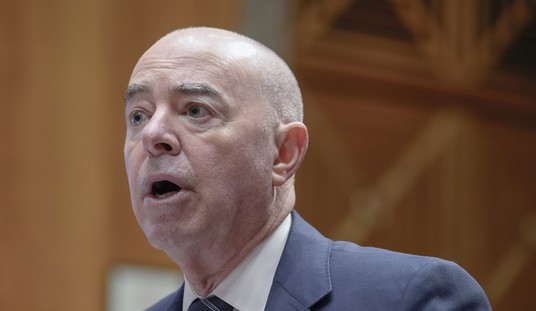It’s been six weeks since Republicans passed their budget to finance a slimmed-down government: aside from defunding Planned Parenthood and National Public Radio, can you cite any significant federal programs that were axed?
From the moment they passed their first budget, Republican insiders decided to run the contest as a numbers game, and this may have been a classic miscalculation. Republicans promised $100 billion in cuts even before Rep. John Boehner was handed the speaker’s gavel, but it has never been clear where this $100 billion number originated. Nevertheless, it became the standard for judging success.
Unless Republicans change their spending narrative away from numbers, they will lose the larger budget debate: only a focus on themes and values will win the hearts and minds of Americans. Unless the GOP can touch independent Americans who are fearful we are moving towards national bankruptcy, they will lose the most important political cause of our generation.
In retrospect, it does appears the $100 billion figure was the product of typical inside Washington calculations. Big round numbers sound good to the public. Former President Bill Clinton once vigorously campaigned for the funding of 100,000 new police officers. Why 100,000? Because it sounded like a serious anti-crime number. Yet it was a number picked out of thin air.
Even when Speaker Boehner reduced the amount to $61 billion, it was a mystery number. What did it mean? What major (liberal) spending programs were to be eliminated?
Without any substance or vision, this number was malleable. Democrats seized on it and began offering numbers lower than $61 billion. First $10 billion, then $30 billion, and finally $38 billion in cuts. The numbers moved here and there over the weeks, but the national debate never became more than a green-shaded accounting conversation.
The Democrats and the president didn’t play the game the way Republicans expected. Instead of engaging the Republican budget, they went silent. They either completely ignored the House budget bill, acting as if it never happened, or they branded it a fantasy written to appease “extreme” Tea Party members. The media assented.
The president, in his usual style, remained completely detached and aloof. Conveniently ignoring the fact the Democrats never passed a budget when they had the majority, Senate Majority Leader Harry Reid (D-NV) said the budget impasse was because of incalcitrant Republicans. This drove Republicans nuts, but they could never find an offensive game plan.
How did Republicans go from winning spectacular November victories to being on the ropes in the spring? There are many private explanations, including Speaker Boehner and Senate Minority Leader McConnell’s penchants for behind-the-scenes negotiations.
In early March, the U.S. Government Accountability Office (GAO) handed a gift to Republicans. Last year Senator Tom Coburn (R-OK) was able to enact a small rider mandating the GAO issue an annual estimate on governmental waste: the GAO identified $200 billion in waste from duplicative programs alone. The Wall Street Journal reported:
The U.S. government has 15 different agencies overseeing food-safety laws, more than 20 separate programs to help the homeless and 80 programs for economic development.
This was an opening for the Republicans — they could address government gone wild. They could launch an offensive tied to their budget. But Republicans did not relentlessly hammer Democrats about the report, and President Obama even tried to attach himself to it, saying it also was his priority to end wasteful programs. The story died.
In the last inning of the battle, the Democrats went on the offensive over content. This certainly was not an original Democratic strategy — they argued that various important constituencies would be hurt by the Republican budget. Specifically, Reid said the budget was being held hostage over defunding of Planned Parenthood. Republicans chose to prove they were not out to hurt granny or women, putting themselves on the defensive.
The transformation was complete: a victorious party to a defensive one fighting over less than one percent of the budget.
Early last week Rep. Paul Ryan (R-WI) was the first one to break out of the Republican numbers-speak with a brilliant speech. Releasing a visionary budget proposal, he condemned the current budget debate, calling it “disconnected from reality.” Ryan launched a different type of narrative: without changing our habit of spend, spend, spend, America was on the “path of national bankruptcy” and facing a “death spiral.” This is the kind of language Americans could understand.
Unfortunately, Americans were confused about the new Ryan budget initiative. Was this related to the current congressional stalemate? Or was this a new ten-year blueprint? In TV jargon, Ryan had “stepped on” another narrative — the short-term budget battle. He had launched his campaign while another one had yet to be resolved. And while it was a favorable one-day news story for Ryan, by the end of the week it was overshadowed by the drama over the government shutdown. His initiative got lost in the mumbling over $30 billion to $60 billion in cuts. Why did Republicans and Rep. Ryan agree to this schedule?
On the positive side, the disjointed debate has altered some of the most important dialogue in Washington. From the halcyon early days of President Obama’s spending mania, we have seen a cultural shift: later this week Mr. Obama will hold a televised nationwide address on deficit reduction. The race to be on the “right side” of spending cuts has begun.
Obama’s speech is a second chance for Democrats, who after their decisive loss in November appear to be bouncing back. In effect Obama wishes to push the “reset” button on his earlier 2012 budget. The early indications are that he wants to talk themes and values, not merely numbers.
This will be a direct challenge to the House and Senate Republicans. Will they be able to regain the momentum? Will they be able to sharply define the deficit problem America faces, or will they remain stuck in abstractions? And will they put together a sophisticated communications plan to sell their ideas to the public?
Not everything is lost in a first skirmish. But if Republicans cannot provide more vivid imagery and find emotive language to frame their cause, they could lose the war.









Join the conversation as a VIP Member